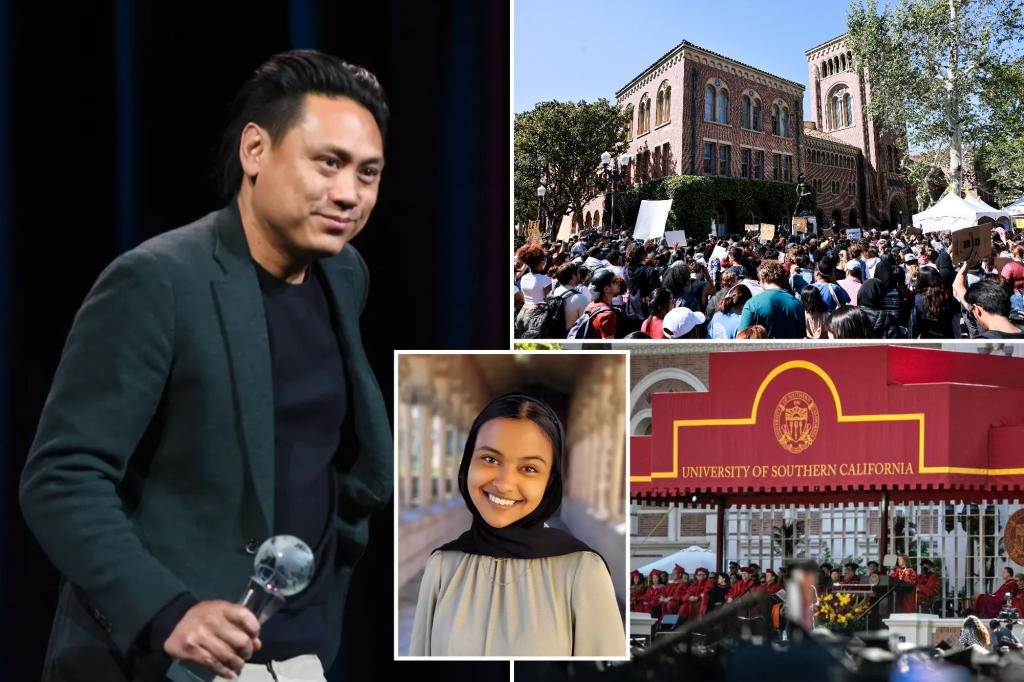The University of Southern California recently made changes to its commencement plans, initially canceling valedictorian Asna Tabassum’s speech due to safety concerns related to her support for Palestinians in the Israel-Hamas war. This decision was met with praise from pro-Israel groups but criticism from free speech organizations and the Council on American-Islamic Relations. In response to the controversy, USC has now decided to redesign the entire commencement program, including canceling filmmaker Jon M. Chu’s keynote address. Chu, a graduate of the university known for films like “Crazy Rich Asians” and “Wicked,” will not be attending the ceremony, with the hope of conferring honorary degrees at future events.
Despite the changes to the commencement program, more than 65,000 people are still expected to gather on campus for the ceremony, which will include 19,000 graduates. In a statement, Tabassum expressed disappointment that what should have been a time of celebration has been overshadowed by racist hatred due to her beliefs in human rights. The Israel-Hamas conflict has placed universities in a difficult position of balancing free speech with open debate, as seen by the recent incident at Columbia University. New York police removed an anti-Israel protest encampment on campus, leading to the arrest of over 100 demonstrators, many of whom were charged with trespassing and faced suspensions from the university.
The situation at Columbia University highlights the challenges faced by colleges when it comes to maintaining order on campus while respecting the rights to free speech. The involvement of law enforcement in addressing protests brings to light the fine line between protecting the right to express one’s views and ensuring that university policies are not violated. New York City Mayor Eric Adams emphasized that students have the right to free speech but must adhere to university policies and not disrupt learning on campus. The incident at Columbia serves as a reminder that universities across the country may face similar challenges as commencement speeches begin in the coming weeks.
The decision to cancel Tabassum’s speech due to safety concerns has sparked debates around issues of free speech, political beliefs, and the role of universities in fostering open dialogue. Pro-Israel organizations supported USC’s choice, viewing it as a means to maintain a safe environment for all students. However, free speech groups and the Council on American-Islamic Relations condemned the decision, arguing that it violated Tabassum’s right to speak. USC’s subsequent decision to redesign the commencement program and release outside speakers from attending the event reflects the university’s efforts to address the situation and ensure a safe environment for all participants.
As universities continue to navigate complex issues related to free speech, political activism, and safety concerns, the incident at USC serves as a case study of the challenges faced by educational institutions in a politically charged environment. Balancing the promotion of diverse viewpoints while also ensuring the safety and well-being of students and faculty is a delicate task. The cancellation of Tabassum’s speech and Chu’s keynote address demonstrate the need for ongoing dialogue and reflection on how universities can uphold their commitment to free expression while addressing concerns around safety and security. In the midst of these controversies, colleges must find ways to foster an inclusive and respectful environment that supports a wide range of perspectives.


